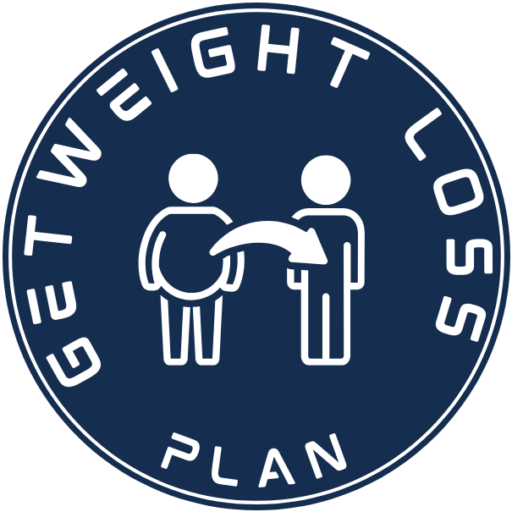Understanding Your Goals and Setting Realistic Expectations
When embarking on a weight loss journey, the first step is to understand your personal goals and set realistic expectations. This foundation is crucial for achieving sustainable success. Begin by assessing your current health status, lifestyle, and the reasons behind your desire to lose weight. Whether it’s improving overall health, increasing energy levels, or enhancing physical appearance, having a clear objective will guide your efforts.
Determining an achievable weight loss target is essential. Medical professionals often recommend aiming for a gradual weight loss of 1 to 2 pounds per week. This rate is not only safe but also more likely to yield long-term results. To calculate your target, consider using tools like the Body Mass Index (BMI) and consulting with a healthcare provider to set a healthy and attainable goal.
Creating a balanced plan involves incorporating a nutritious diet, regular physical activity, and sufficient rest. It is important to avoid extreme diets or overly intense exercise routines that promise quick results but are unsustainable and potentially harmful. Instead, focus on making incremental changes to your eating habits and incorporating a mix of cardiovascular, strength, and flexibility exercises into your routine.
Tracking progress is vital for staying motivated and making necessary adjustments. Utilize tools such as food diaries, fitness apps, or wearable devices to monitor your daily intake and physical activity. Regularly check your progress against your goals and celebrate small victories along the way. Remember, consistency is key, and acknowledging progress, no matter how small, can boost your confidence and commitment.
It’s crucial to emphasize that quick results should not compromise long-term health. Rapid weight loss can lead to muscle loss, nutritional deficiencies, and other health issues. Prioritize a balanced and sustainable approach that promotes overall well-being. By understanding your goals, setting realistic expectations, and creating a comprehensive plan, you can achieve lasting weight loss results while maintaining your health and vitality.
Optimizing Your Diet for Maximum Results
When aiming for rapid weight loss, dietary adjustments are paramount. Focusing on balanced nutrition ensures that your body receives essential nutrients while promoting a sustainable weight loss process. A key strategy involves incorporating nutrient-dense foods that not only boost metabolism but also keep you satiated for longer periods. Examples of such foods include leafy greens, whole grains, lean proteins, and healthy fats like those found in avocados and nuts.
Reducing the intake of sugar and refined carbohydrates is another critical aspect. These foods can lead to spikes and crashes in blood sugar levels, which can increase cravings and ultimately hinder weight loss efforts. Instead, opt for complex carbohydrates such as quinoa, brown rice, and oatmeal, which provide sustained energy and help maintain stable blood sugar levels.
Protein plays a significant role in weight loss by preserving lean muscle mass and enhancing metabolic rate. Incorporating high-protein foods like chicken breast, fish, tofu, and legumes in your meals can aid in reducing overall calorie intake by promoting a feeling of fullness. Additionally, protein requires more energy for digestion, which can slightly boost your metabolism.
Staying hydrated is often overlooked but is crucial for effective weight loss. Drinking adequate water not only helps to maintain bodily functions but also assists in controlling hunger. Sometimes, the body can mistake thirst for hunger, leading to unnecessary calorie consumption. Aim to drink at least 8 glasses of water per day, and consider starting meals with a glass of water to help control portion sizes.
Meal prepping and planning can significantly contribute to maintaining a healthy eating routine. By preparing meals in advance, you can ensure that you have access to nutritious options even on busy days, reducing the temptation to opt for unhealthy convenience foods. Plan your meals around a balance of macronutrients, and include a variety of colorful vegetables to cover your micronutrient needs.
Incorporating Effective Exercise Routines
Achieving quick weight loss requires a well-rounded exercise routine that combines various types of workouts to maximize calorie burn and build muscle. One of the most effective strategies is to integrate both cardiovascular exercises and strength training into your fitness plan. Cardiovascular exercises, such as running, cycling, and swimming, are excellent for burning calories and improving heart health. On the other hand, strength training exercises, like weight lifting and bodyweight exercises, help build muscle, which in turn increases your metabolic rate and aids in faster weight loss.
A highly recommended approach to expedite weight loss is High-Intensity Interval Training (HIIT). HIIT involves alternating between short bursts of intense activity and periods of lower intensity or rest. This method not only burns a significant number of calories in a short amount of time but also keeps your metabolism elevated even after the workout is complete. A sample HIIT routine could include 30 seconds of sprinting followed by 30 seconds of walking, repeated for 15-20 minutes.
In addition to HIIT, incorporating resistance exercises is crucial. These exercises, which can be done using weights, resistance bands, or even your own body weight, help in building and toning muscle. A balanced resistance workout might include squats, lunges, push-ups, and pull-ups, performed in sets of 8-12 repetitions. Flexibility workouts, such as yoga or Pilates, should also be included to enhance muscle recovery and prevent injuries.
Consistency is key to seeing results. It’s essential to maintain a regular workout schedule, aiming for at least 150 minutes of moderate-intensity exercise or 75 minutes of high-intensity exercise per week. Gradually increasing the intensity and duration of your workouts can help prevent plateaus and reduce the risk of injury. Sustainable weight loss is a marathon, not a sprint, and developing a balanced exercise routine can pave the way for lasting results.
Adopting Healthy Lifestyle Habits
Adopting healthy lifestyle habits is fundamental for achieving sustainable weight loss and overall well-being. One of the key factors is improving sleep quality, as inadequate rest can disrupt hormonal balance, leading to increased hunger and cravings. Aim for 7-9 hours of quality sleep per night by establishing a consistent sleep schedule, creating a relaxing bedtime routine, and minimizing exposure to screens before bed.
Managing stress is another crucial element. Chronic stress can trigger emotional eating and hinder weight loss efforts. Incorporate stress-reducing activities into your daily routine, such as mindfulness meditation, deep breathing exercises, or physical activities like yoga or walking. These practices help to calm the mind and reduce the likelihood of turning to food for comfort.
Maintaining a positive mindset is equally important. Focus on progress rather than perfection and celebrate small victories along the way. Surround yourself with positive influences and seek social support from friends, family, or support groups. Sharing your journey with others can provide motivation, encouragement, and accountability.
Creating a supportive environment at home can significantly impact your weight loss success. Reduce temptations by keeping unhealthy snacks out of sight and stocking up on nutritious options instead. Organize your kitchen in a way that promotes healthy eating habits, such as keeping fruits and vegetables at eye level in the fridge.
Lastly, prioritize self-care. Small, sustainable changes in daily habits can lead to significant, long-term weight loss. This includes staying hydrated, eating balanced meals, and incorporating regular physical activity into your routine. Remember that self-care is not selfish but a necessary component of a healthy lifestyle.
Incorporating these healthy lifestyle habits can create a solid foundation for achieving and maintaining weight loss. By improving sleep quality, managing stress, maintaining a positive mindset, creating a supportive environment, and prioritizing self-care, you set yourself up for long-term success and overall well-being.


Leave a Reply